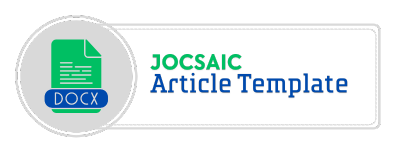A Narrative Exploring the Potential of ChatGPT: How AI Models Are Changing the Way We Interact with Technology
DOI:
https://doi.org/10.64803/jocsaic.v1i1.5Keywords:
ChatGPT, Artificial Intelligence in Education, Academic Integrity, Ethical Considerations, Student PerceptionsAbstract
This study explores the perceptions, attitudes, and ethical considerations surrounding the use of ChatGPT among university students. By combining quantitative and qualitative research methods, including surveys and a review of existing literature, the study examines how ChatGPT is utilized in academic settings and its impact on learning outcomes, academic integrity, and scholarly achievements. The findings suggest that ChatGPT significantly enhances students' productivity, learning experiences, and writing abilities. However, concerns regarding its potential misuse, particularly about academic integrity, plagiarism, and over-reliance on AI tools, were also identified. The research highlights the importance of establishing clear ethical guidelines and policies to regulate the use of AI in educational settings. Future research should focus on the long-term effects of ChatGPT on students' academic development and investigate strategies for promoting responsible AI usage in higher education.
Downloads
References
[1] T. Adıgüzel, M. H. Kaya, and F. K. Cansu, “Revolutionizing education with AI: Exploring the transformative potential of ChatGPT,” Contemp. Educ. Technol., vol. 15, no. 3, 2023, doi: 10.30935/cedtech/13152.
[2] M. Farrokhnia, S. K. Banihashem, O. Noroozi, and A. E. J. Wals, “A SWOT analysis of ChatGPT: Implications for educational practice and research,” Innov. Educ. Teach. Int., vol. 61, no. 3, pp. 460–474, 2023, doi: 10.1080/14703297.2023.2195846.
[3] M. A. R. Vasconcelos and R. P. dos Santos, “Enhancing STEM learning with ChatGPT and Bing Chat as objects to think with: A case study,” Eurasia J. Math. Sci. Technol. Educ., vol. 19, no. 7, 2023, doi: 10.29333/ejmste/13313.
[4] W. Hariri, “Unlocking the Potential of ChatGPT: A Comprehensive Exploration of its Applications, Advantages, Limitations, and Future Directions in Natural Language Processing,” arXiv (Cornell Univ., 2023, doi: 10.48550/arxiv.2304.02017.
[5] C. Machovec, M. Rieley, and E. Rolen, “Incorporating AI impacts in BLS employment projections: occupational case studies,” Mon. labor Rev., 2013, doi: 10.21916/mlr.2025.1.
[6] C. Yu, J. Yan, and N. Cai, “ChatGPT in higher education: factors influencing ChatGPT user satisfaction and continued use intention,” Front. Educ., vol. 9, 2024, doi: 10.3389/feduc.2024.1354929.
[7] A. Gaitantzi and I. Kazanidis, “The Role of Artificial Intelligence in Computer Science Education: A Systematic Review with a Focus on Database Instruction,” Appl. Sci., vol. 15, no. 7, p. 3960, Apr. 2025, doi: 10.3390/app15073960.
[8] A. Nazir and Z. Wang, “A comprehensive survey of ChatGPT: Advancements, applications, prospects, and challenges,” Meta-Radiology, vol. 1, no. 2, p. 100022, 2023, doi: 10.1016/j.metrad.2023.100022.
[9] A. Bahrini et al., “ChatGPT: Applications, Opportunities, and Threats,” in 2023 Systems and Information Engineering Design Symposium (SIEDS), IEEE, Apr. 2023, pp. 274–279. doi: 10.1109/SIEDS58326.2023.10137850.
[10] J. T. K. Phua, H. F. Neo, and C.-C. Teo, “Evaluating the Impact of Artificial Intelligence Tools on Enhancing Student Academic Performance: Efficacy Amidst Security and Privacy Concerns,” Big Data Cogn. Comput., vol. 9, no. 5, p. 131, 2025, doi: 10.3390/bdcc9050131.
[11] M. Alawida, S. Mejri, A. Mehmood, B. Chikhaoui, and O. I. Abiodun, “A Comprehensive Study of ChatGPT: Advancements, Limitations, and Ethical Considerations in Natural Language Processing and Cybersecurity,” Information, vol. 14, no. 8, p. 462, 2023, doi: 10.3390/info14080462.
[12] A. Chen and D. O. Chen, “Accuracy of Chatbots in Citing Journal Articles,” JAMA Netw. Open, vol. 6, no. 8, 2023, doi: 10.1001/jamanetworkopen.2023.27647.
[13] M. Alawida, B. A. Shawar, O. I. Abiodun, A. Mehmood, A. E. Omolara, and A. K. Al Hwaitat, “Unveiling the Dark Side of ChatGPT: Exploring Cyberattacks and Enhancing User Awareness,” Information, vol. 15, no. 1, p. 27, 2024, doi: 10.3390/info15010027.
[14] P. P. Ray, “ChatGPT: A comprehensive review on background, applications, key challenges, bias, ethics, limitations and future scope,” 2023, Elsevier BV. doi: 10.1016/j.iotcps.2023.04.003.
[15] M. Jeyaraman, S. Ramasubramanian, S. Balaji, N. Jeyaraman, A. Nallakumarasamy, and S. Sharma, “ChatGPT in action: Harnessing artificial intelligence potential and addressing ethical challenges in medicine, education, and scientific research,” 2023. doi: 10.5662/wjm.v13.i4.170.
[16] H. Yu, “Reflection on whether Chat GPT should be banned by academia from the perspective of education and teaching,” Front. Psychol., vol. 14, 2023, doi: 10.3389/fpsyg.2023.1181712.
[17] N. Rane, “Role of ChatGPT and Similar Generative Artificial Intelligence (AI) in Construction Industry,” SSRN Electron. J., 2023, doi: 10.2139/ssrn.4598258.
[18] M. Paramesha, N. Rane, and J. Rane, “Enhancing Resilience through Generative Artificial Intelligence such as ChatGPT,” SSRN Electron. J., 2024, doi: 10.2139/ssrn.4832533.
[19] T. Dave, S. A. Athaluri, and S. Singh, “ChatGPT in medicine: an overview of its applications, advantages, limitations, future prospects, and ethical considerations,” 2023, Frontiers Media. doi: 10.3389/frai.2023.1169595.
[20] D. Ali, Y. Fatemi, E. Boskabadi, M. Nikfar, J. Ugwuoke, and H. Ali, “ChatGPT in Teaching and Learning: A Systematic Review,” 2024, Multidisciplinary Digital Publishing Institute. doi: 10.3390/educsci14060643.
[21] X. Tan, “The Impact of ChatGPT on Education and Future Prospects,” Highlights Sci. Eng. Technol., vol. 61, pp. 138–143, 2023, doi: 10.54097/hset.v61i.10285.
[22] A. M. Bettayeb, M. A. Talib, A. Z. S. Altayasinah, and F. Dakalbab, “Exploring the impact of ChatGPT: conversational AI in education,” Front. Educ., vol. 9, 2024, doi: 10.3389/feduc.2024.1379796.
[23] Y. Qawqzeh, “Exploring the Influence of Student Interaction with ChatGPT on Critical Thinking, Problem Solving, and Creativity,” Int. J. Inf. Educ. Technol., vol. 14, no. 4, pp. 596–601, 2024, doi: 10.18178/ijiet.2024.14.4.2082.
[24] R. H. Mogavi et al., “ChatGPT in education: A blessing or a curse? A qualitative study exploring early adopters’ utilization and perceptions,” Comput. Hum. Behav. Artif. Humans, vol. 2, no. 1, p. 100027, 2023, doi: 10.1016/j.chbah.2023.100027.
[25] A. M. Hasanein and A. E. E. Sobaih, “Drivers and Consequences of ChatGPT Use in Higher Education: Key Stakeholder Perspectives,” Eur. J. Investig. Heal. Psychol. Educ., vol. 13, no. 11, pp. 2599–2614, 2023, doi: 10.3390/ejihpe13110181.
[26] L. Naamati-Schneider, “Enhancing AI competence in health management: students’ experiences with ChatGPT as a learning Tool,” BMC Med. Educ., vol. 24, no. 1, 2024, doi: 10.1186/s12909-024-05595-9.
[27] Y. Albadarin, M. Saqr, N. Pope, and M. Tukiainen, “A systematic literature review of empirical research on ChatGPT in education,” Discov. Educ., vol. 3, no. 1, 2024, doi: 10.1007/s44217-024-00138-2.
[28] M. Al-kfairy, “Factors Impacting the Adoption and Acceptance of ChatGPT in Educational Settings: A Narrative Review of Empirical Studies,” 2024, Multidisciplinary Digital Publishing Institute. doi: 10.3390/asi7060110.
[29] Q. Xia, X. Weng, F. Ouyang, T. Lin, and T. K. F. Chiu, “A scoping review on how generative artificial intelligence transforms assessment in higher education,” 2024, Springer Nature. doi: 10.1186/s41239-024-00468-z.
[30] M. Abbas, F. A. Jam, and T. I. Khan, “Is it harmful or helpful? Examining the causes and consequences of generative AI usage among university students,” Int. J. Educ. Technol. High. Educ., vol. 21, no. 1, 2024, doi: 10.1186/s41239-024-00444-7.
[31] P. P. Pawar, K. B. Salve, and R. R. Patil, “‘Impact of ChatGPT on Student’s Education: A Comprehensive analysis of positive and negative effects,’” J. Adv. Zool., 2023, doi: 10.53555/jaz.v44is8.3504.
[32] D. Ravšelj et al., “Higher education students’ perceptions of ChatGPT: A global study of early reactions,” PLoS One, vol. 20, no. 2, 2025, doi: 10.1371/journal.pone.0315011.
[33] R. George, H. H. K. Soe, P. M. Donald, R. S. Samson, and A. R. H. Ismail, “ChatGPT for Academic Purposes: Survey Among Undergraduate Healthcare Students in Malaysia,” Cureus, 2024, doi: 10.7759/cureus.53032.
[34] R. H. Mogavi et al., “Exploring User Perspectives on ChatGPT: Applications, Perceptions, and Implications for AI-Integrated Education,” arXiv (Cornell Univ., 2023, doi: 10.48550/arxiv.2305.13114.
[35] M. I. Biswas, M. S. Talukder, and Y. Chen, “Applying the stimulus-organism-behavior-consequence framework to examine the relationship between intention, usage and recommendation of ChatGPT in higher education,” Int. J. Educ. Manag., 2025, doi: 10.1108/ijem-09-2023-0463.
[36] C. K. Y. Chan and W. Hu, “Students’ Voices on Generative AI: Perceptions, Benefits, and Challenges in Higher Education,” arXiv (Cornell Univ., 2023, doi: 10.48550/arxiv.2305.00290.
[37] S. Sarwanti, Y. Sariasih, L. Rahmatika, M. Islam, and E. M. Riantina, “Are They Literate on ChatGPT? University Language Students’ Awareness, Benefits and Challenges in Higher Education Learning,” Online Learn., vol. 28, no. 3, 2024, doi: 10.24059/olj.v28i3.4599.
[38] B. G. A. Enríquez, M. A. A. Ballesteros, O. H. Jordan, C. L. Roca, and K. S. Tirado, “Analysis of college students’ attitudes toward the use of ChatGPT in their academic activities: effect of intent to use, verification of information and responsible use,” BMC Psychol., vol. 12, no. 1, 2024, doi: 10.1186/s40359-024-01764-z.
[39] S. A. Bin-Nashwan, M. Sadallah, and M. Bouteraa, “Use of ChatGPT in academia: Academic integrity hangs in the balance,” Technol. Soc., vol. 75, p. 102370, 2023, doi: 10.1016/j.techsoc.2023.102370.
[40] S. S. Gill et al., “Transformative Effects of ChatGPT on Modern Education: Emerging Era of AI Chatbots,” arXiv (Cornell Univ., 2023, doi: 10.48550/arxiv.2306.03823.
[41] D. Fontenelle-Tereshchuk, “Academic writing and ChatGPT: Students transitioning into college in the shadow of the COVID-19 pandemic,” Discov. Educ., vol. 3, no. 1, 2024, doi: 10.1007/s44217-023-00076-5.
[42] T. Livberber and S. Ayvaz, “The impact of Artificial Intelligence in academia: Views of Turkish academics on ChatGPT,” Heliyon, vol. 9, no. 9, 2023, doi: 10.1016/j.heliyon.2023.e19688.
[43] R. Michel‐Villarreal, E. L. Vilalta-perdomo, D. E. Salinas-Navarro, R. Thierry-Aguilera, and F. S. Gerardou, “Challenges and Opportunities of Generative AI for Higher Education as Explained by ChatGPT,” Educ. Sci., vol. 13, no. 9, p. 856, 2023, doi: 10.3390/educsci13090856.
[44] M. A. Malik, A. I. Amjad, S. Aslam, and A. Fakhrou, “Global insights: ChatGPT’s influence on academic and research writing, creativity, and plagiarism policies,” Front. Res. Metrics Anal., vol. 9, 2024, doi: 10.3389/frma.2024.1486832.
[45] W. C. Morales-García, L. Z. Sairitupa-Sanchez, S. B. Morales-García, and M. Morales-García, “Development and validation of a scale for dependence on artificial intelligence in university students,” Front. Educ., vol. 9, 2024, doi: 10.3389/feduc.2024.1323898.
Downloads
Published
Issue
Section
License
Copyright (c) 2024 Muhammad Eka, Munjiat Setiani Asih, Fera Damayanti, Rusmin Saragih, Supiyandi Supiyandi (Author)

This work is licensed under a Creative Commons Attribution-ShareAlike 4.0 International License.









